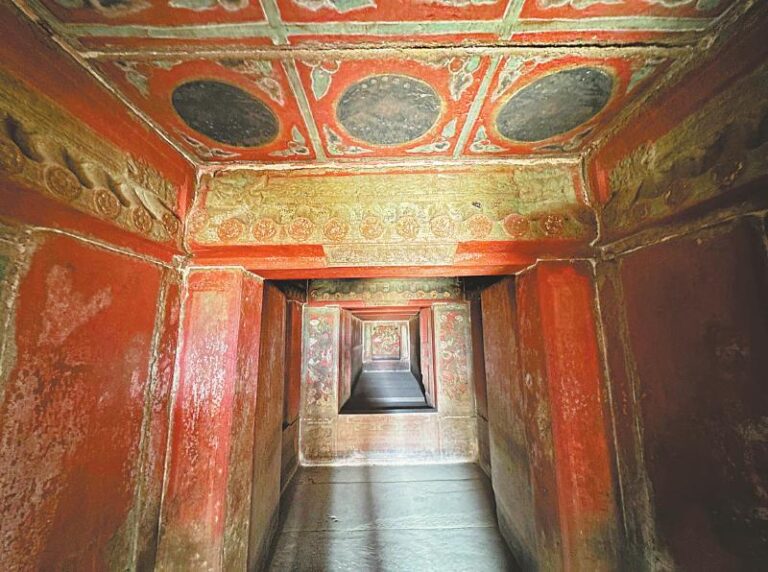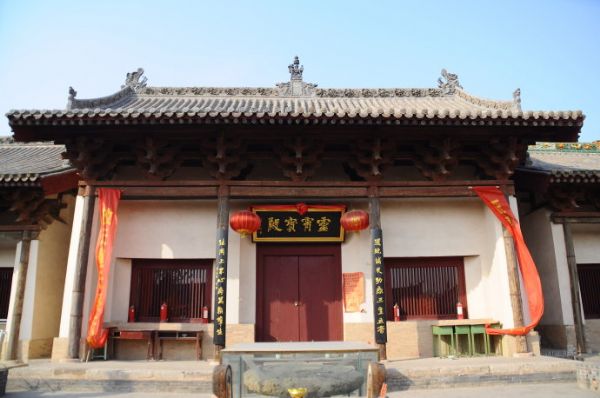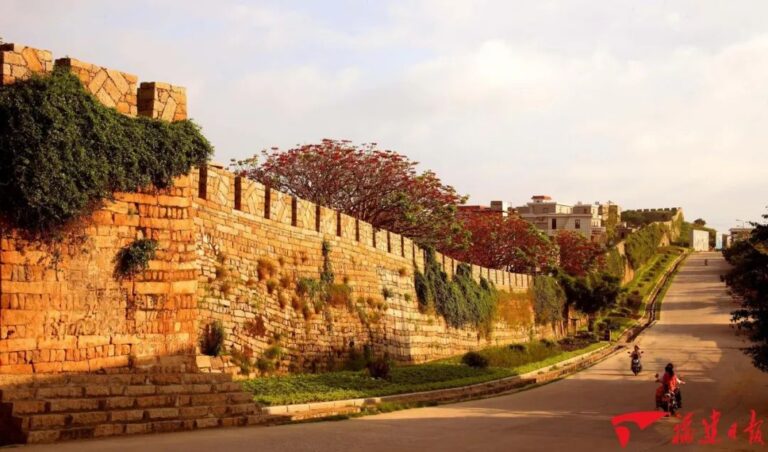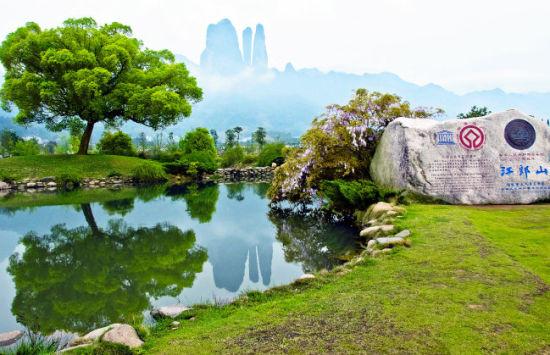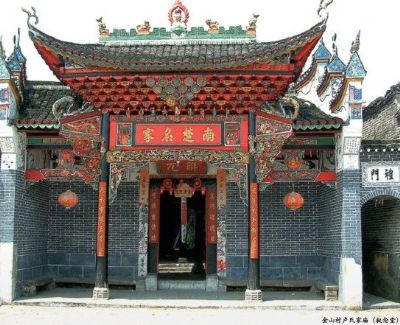Unveiling the Mystique of Luliang Yukou Shengmu Temple: A Must-Visit in Shanxi
An Essential Guide to Visiting Luliang Yukou Shengmu Temple
In This Guide
- An Essential Guide to Visiting Luliang Yukou Shengmu Temple
- The Rich History of Luliang Yukou Shengmu Temple
- Main Highlights: What to See at Luliang Yukou Shengmu Temple
- Planning Your Visit: A Practical Guide
- Tickets, Hours, and Booking
- How to Get There
- Local Cuisine and Accommodation
- Frequently Asked Questions
- Final Thoughts on Your Trip
Nestled within the picturesque landscape of Shanxi Province, Luliang Yukou Shengmu Temple, known as the Sanctuary of the Holy Mother, stands as a testament to the rich cultural tapestry of China. This enchanting site is not only a place of spiritual significance but also a treasure trove of architectural beauty and historical importance.
The temple is dedicated to the veneration of the Holy Mother, a revered figure in local folklore and Daoism, drawing thousands of pilgrims and tourists alike. Surrounded by majestic mountains and lush greenery, the temple offers a serene escape from the hustle and bustle of everyday life, inviting visitors to immerse themselves in its tranquil atmosphere.
Originally established during the Ming Dynasty, Yukou Shengmu Temple showcases exquisite craftsmanship, with intricate carvings and vibrant murals that tell stories of devotion and reverence. Its dramatic setting atop a hill provides breathtaking views of the surrounding valleys, enhancing the spiritual experience for those who venture here.
As a recognized national cultural heritage site, the temple embodies not just a religious sanctuary but also a focal point for community gatherings and cultural events. Whether you are a history enthusiast, a spiritual seeker, or simply in search of peace and beauty, Yukou Shengmu Temple promises an unforgettable journey into the heart of Shanxi’s rich traditions and natural splendor.
The Rich History of Luliang Yukou Shengmu Temple
Luliang Yukou Shengmu Temple, known as 峪口圣母庙 in Chinese, is a remarkable historical and cultural site located in Shanxi Province, China. Its origins trace back to the Ming Dynasty, making it a significant landmark that reflects the region’s rich spiritual and architectural heritage.
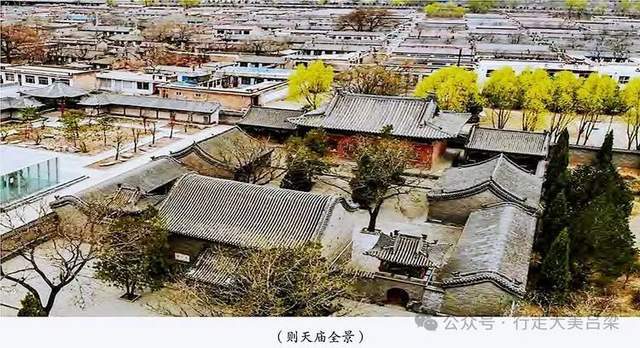
Luliang Yukou Shengmu Temple.
The temple is dedicated to the worship of the goddess Ma Zu, revered as the protector of sailors and travelers. This devotion highlights the historical importance of waterway navigation and trade in ancient China, particularly in the mountainous regions of Shanxi. The site has served as a spiritual refuge for generations, drawing pilgrims who seek blessings for safe journeys and protection from the uncertainties of travel.
Throughout its history, Yukou Shengmu Temple has undergone numerous renovations and expansions. The most significant restoration occurred during the Qing Dynasty, which saw the addition of intricate carvings and architectural enhancements that showcase the artistry of the period. These renovations not only preserved the temple’s structural integrity but also enriched its aesthetic appeal, making it a captivating destination for visitors today.
In 2019, Yukou Shengmu Temple was designated as a national cultural heritage site, a recognition that underscores its historical significance and the role it plays in the cultural landscape of Shanxi. This designation has helped promote awareness and appreciation of the temple among both locals and tourists, ensuring that its rich history is not forgotten.
The temple complex is characterized by its harmonious integration with the surrounding natural landscape, which adds to its serene atmosphere. Visitors can explore the various halls and altars adorned with beautiful murals and sculptures that tell stories of devotion and folklore, providing insight into the beliefs and practices of the local community.
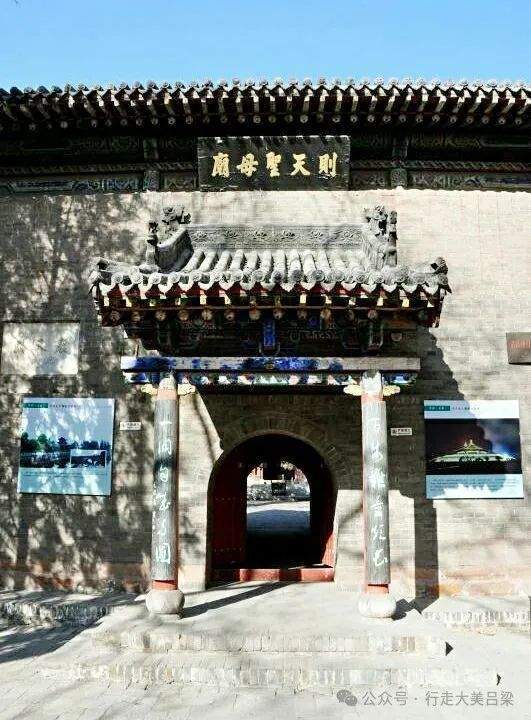
Luliang Yukou Shengmu Temple.
Today, Luliang Yukou Shengmu Temple stands not only as a place of worship but also as a testament to the enduring legacy of Chinese culture and spirituality. It serves as a reminder of the deep-rooted traditions that continue to shape the lives of people in the region and attracts those who wish to explore the historical narratives woven into the very fabric of this sacred space.
Main Highlights: What to See at Luliang Yukou Shengmu Temple
Luliang Yukou Shengmu Temple, located in the picturesque Luliang region of Shanxi Province, is a site of profound cultural and spiritual significance that attracts visitors with its captivating architecture and serene ambiance. Here are the key highlights of this remarkable temple:
-
Historical Significance: Built during the Ming Dynasty, Yukou Shengmu Temple is dedicated to the worship of the Goddess of Mercy, showcasing the rich spiritual heritage of the area. The temple’s history reflects the deep-rooted traditions of Chinese Buddhism and Taoism, making it a vital part of local culture.
-
Stunning Architecture: The temple features exquisite architectural designs that blend traditional Chinese aesthetics with natural surroundings. Visitors can admire the intricate carvings, vibrant murals, and elegant wooden structures, all of which demonstrate the craftsmanship of ancient artisans.
-
Tranquil Environment: Nestled amidst lush mountains and serene landscapes, the temple offers a peaceful retreat from the hustle and bustle of modern life. The tranquil surroundings make it an ideal spot for meditation and reflection, drawing both pilgrims and travelers seeking solace.
-
Cultural Experiences: Visitors to Yukou Shengmu Temple can participate in various cultural activities, including traditional ceremonies, festivals, and guided tours. These experiences provide insight into the local customs and religious practices, allowing guests to connect with the community.
-
Breathtaking Views: The temple is strategically located to offer stunning panoramic views of the surrounding mountains and valleys. A hike around the temple grounds rewards visitors with breathtaking vistas, making it a photographer’s paradise and a great spot for nature lovers.
-
Recognition as a National Heritage Site: In recent years, Yukou Shengmu Temple has been recognized as a key national cultural heritage site, further solidifying its importance in preserving Chinese history and spirituality. This recognition has also led to increased efforts in conservation and tourism development.
-
Accessibility: The temple is easily accessible, with convenient transportation options available from nearby cities. Visitors can enjoy a day trip or a longer stay to fully immerse themselves in the beauty and spirituality of the site.
Whether you’re a history enthusiast, a spiritual seeker, or simply someone looking to explore the natural beauty of Shanxi, Luliang Yukou Shengmu Temple offers a unique and enriching experience that should not be missed.
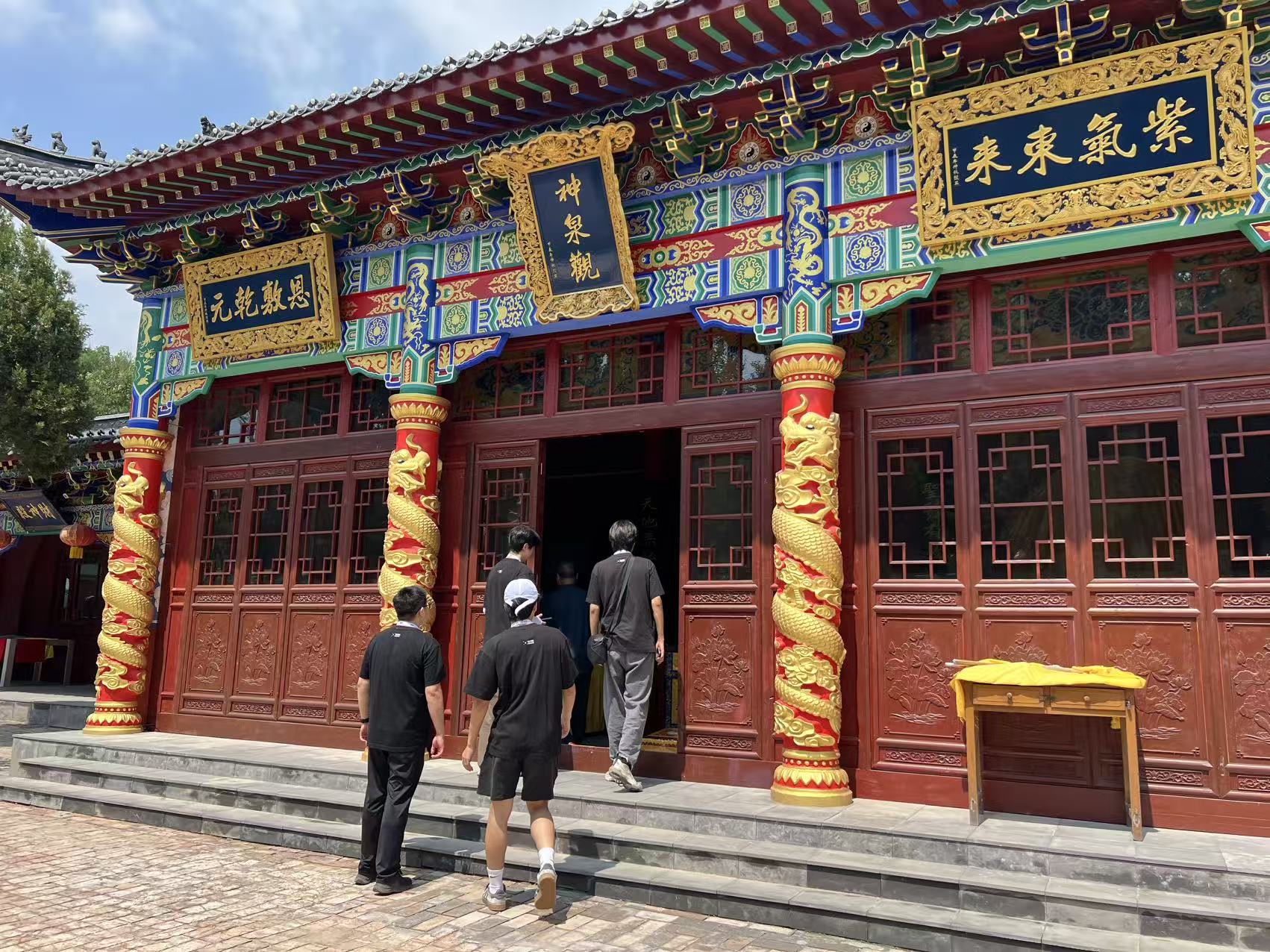
Luliang Yukou Shengmu Temple.
Planning Your Visit: A Practical Guide
Luliang Yukou Shengmu Temple, nestled in the picturesque Luliang region of Shanxi Province, is an important cultural and religious site that attracts visitors with its rich history and stunning architecture. Here’s a practical guide to help you plan your visit to this remarkable temple.
Getting There
Location:
The temple is located in the Yukou area of Fenyang City, within the Luliang region of Shanxi Province. It is approximately 840 kilometers from Beijing, making it accessible by both train and road.
Transportation:
– By Train: The nearest major railway station is in Taiyuan, from where you can take a bus or taxi to Fenyang. There are various trains connecting Taiyuan to major cities across China.
– By Bus: Fenyang offers a good network of buses from surrounding cities, including Taiyuan and Luliang. Look for long-distance buses that specifically mention Fenyang.
– By Car: If you prefer driving, you can rent a car. The region has well-maintained roads, and navigation apps can guide you effectively.
Entry Information
Opening Hours:
The temple is open to visitors daily, typically from 8:00 AM to 6:00 PM. However, it is advisable to check for any seasonal changes in hours or special closures.
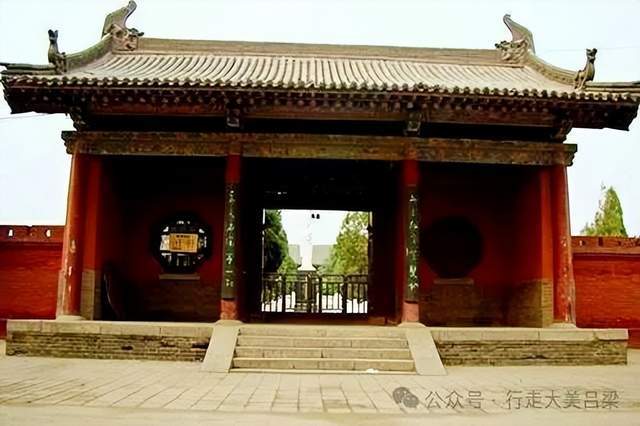
Luliang Yukou Shengmu Temple.
Admission Fees:
Entry to the temple is usually free; however, donations are warmly welcomed to support maintenance and preservation efforts.
What to Expect
Architecture:
Yukou Shengmu Temple is renowned for its exquisite architecture that showcases traditional Chinese design elements. The temple complex features intricate wooden carvings, ornate roofs, and serene courtyards that provide a tranquil environment for reflection and worship.
Cultural Significance:
As a site dedicated to the worship of the Mother Goddess, the temple holds significant cultural importance in the region. Visitors can witness various religious practices and festivals, especially during significant lunar dates when local worshippers gather to pay their respects.
Tips for Visitors
- Best Time to Visit: Spring (April to June) and autumn (September to November) are ideal times to visit due to mild weather and vibrant foliage. Avoid the peak summer months when temperatures can rise significantly.
- Dress Code: While there is no strict dress code, it is respectful to dress modestly when visiting the temple. Comfortable footwear is recommended, as you may be required to walk on uneven paths.
- Photography: Photography is generally allowed, but be respectful of worshippers and avoid using flash during ceremonies.
- Local Cuisine: Don’t miss the opportunity to try local Shanxi dishes after your temple visit. Fenyang is known for its rich culinary heritage, including its famous vinegar and other local specialties.
Nearby Attractions
After exploring Yukou Shengmu Temple, consider visiting these nearby attractions for a more comprehensive experience in the Luliang region:
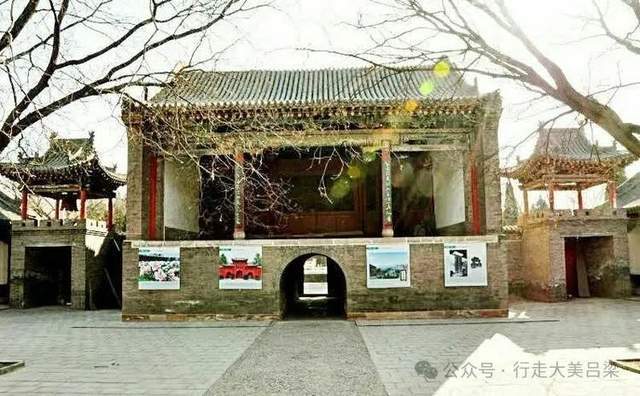
Luliang Yukou Shengmu Temple.
- Fenyang Ancient City: Discover the historical architecture and narrow alleys that tell the story of this ancient town.
- Wang Family Compound: A well-preserved traditional courtyard that offers insight into the lifestyle of wealthy families during the Ming and Qing dynasties.
- Luliang Mountain: For nature lovers, hiking in the nearby mountains provides breathtaking views and a chance to connect with the region’s natural beauty.
Conclusion
A visit to Luliang Yukou Shengmu Temple offers a unique blend of spiritual enrichment and cultural exploration. Whether you are a history enthusiast, a spiritual seeker, or simply an adventurer looking to immerse yourself in local traditions, this temple and its surroundings promise a memorable experience. Prepare well, respect the local customs, and enjoy your journey into the heart of Shanxi’s rich heritage.
Tickets, Hours, and Booking
Visitors planning a trip to Luliang Yukou Shengmu Temple will find the ticketing process straightforward. The entry fee to the temple is set at a very affordable CNY 10 (approximately USD 1.50), making it accessible for all travelers.
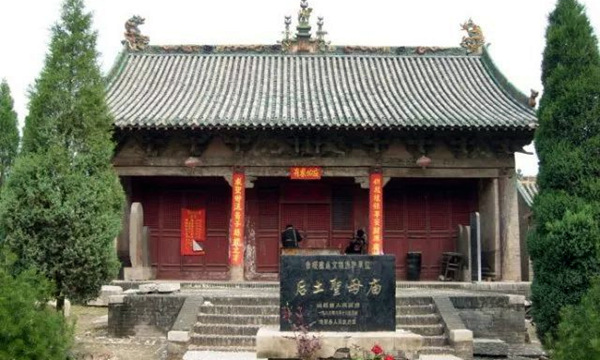
Luliang Yukou Shengmu Temple.
Tickets can be purchased directly at the entrance of the temple. It’s worth noting that the temple is open throughout the year, allowing visitors ample opportunity to explore its serene surroundings and rich cultural heritage.
For those looking to enhance their visit, guided tours may be available, often providing deeper insights into the temple’s history and significance. Be sure to check for any special events or ceremonies that may coincide with your visit, as these can enrich your experience at this revered site.
In summary, with a minimal entry fee and the potential for guided insights, Luliang Yukou Shengmu Temple offers an enriching experience for both the devout and the curious traveler alike.
How to Get There
Getting to and around Luliang Yukou Shengmu Temple (峪口圣母庙) offers a range of options tailored to different preferences and travel styles. Nestled in the picturesque Shanxi Province, this temple is easily accessible for both domestic and international travelers. Here’s a guide to navigating your way to this spiritual and cultural gem.
Arriving in Luliang
By Air:
The nearest major airport is Taiyuan Wusu International Airport (TYN), located approximately 100 kilometers from Luliang. From the airport, you can rent a car, book a taxi, or take a shuttle bus to Luliang. The journey typically takes around 1.5 to 2 hours, depending on traffic.
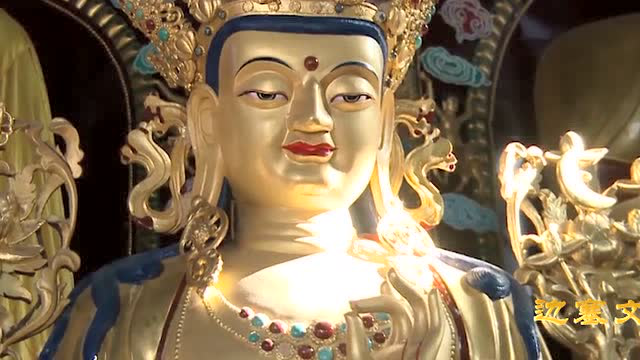
Luliang Yukou Shengmu Temple.
By Train:
Luliang has a well-connected railway network. The Luliang Railway Station serves various routes, including high-speed trains from major cities like Beijing and Xi’an. Once you arrive at the station, you can take a taxi or local bus to reach Yukou Shengmu Temple, which is about 30 kilometers away from the station.
By Bus:
Long-distance buses operate between major cities and Luliang. The Luliang Bus Station has regular services to and from Taiyuan, as well as surrounding areas. Buses are a budget-friendly option, and the ride from Taiyuan usually takes around 2.5 to 3 hours.
Local Transportation
Once in Luliang, there are several convenient ways to explore the area and reach Yukou Shengmu Temple:
Taxis and Ride-Sharing:
Taxis are readily available throughout Luliang, and the fares are relatively inexpensive compared to larger cities. Ride-sharing apps like Didi are also operational, providing a convenient option for travelers who prefer to book their rides through an app.
Public Buses:
Local buses connect various parts of Luliang, including stops near the temple. It’s advisable to check local bus schedules, as they may vary throughout the day. Most buses are affordable, though they may not operate late into the evening.
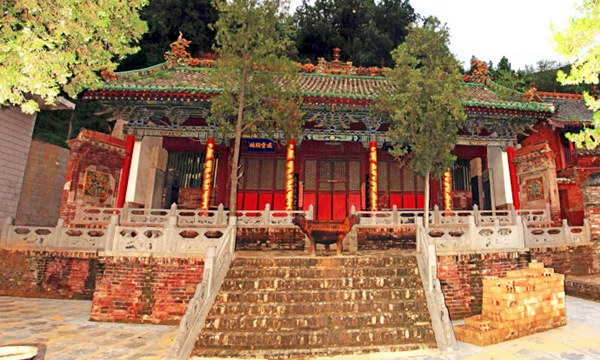
Luliang Yukou Shengmu Temple.
Bicycle Rentals:
For the more adventurous, renting a bicycle can be a delightful way to explore Luliang’s beautiful surroundings at your own pace. Several rental shops are available in the city, and cycling to the temple will allow you to enjoy the scenic landscapes along the way.
Walking:
If you’re staying close to the temple, walking is an excellent option. The area around Yukou Shengmu Temple is picturesque, with many trails and paths that allow visitors to immerse themselves in the local culture and nature.
Tips for Travelers
- Plan Your Visit: Check the temple’s opening hours in advance and consider visiting during weekdays to avoid large crowds.
- Language: While some locals may speak basic English, it’s beneficial to have a translation app or a phrasebook handy, especially if you need assistance with directions.
- Weather Considerations: The weather can vary significantly in Shanxi Province. Dress appropriately for the season and consider bringing an umbrella or sun protection when visiting in the summer months.
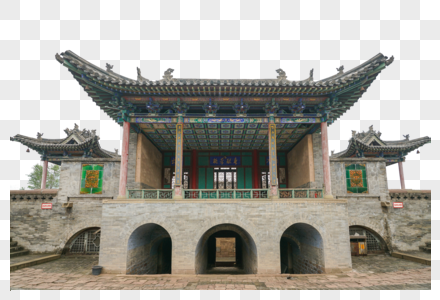
Luliang Yukou Shengmu Temple.
With these transportation options, getting to Yukou Shengmu Temple is straightforward, allowing you to focus on the enriching experience awaiting you at this historical and spiritual site.
Local Cuisine and Accommodation
When visiting Luliang Yukou Shengmu Temple, exploring the local food scene and finding suitable accommodation can greatly enhance your experience. Here’s a guide to some delightful dining options and comfortable places to stay.
Culinary Delights
Local Cuisine
The area around Yukou Shengmu Temple is rich in Shanxi’s culinary traditions, known for its unique flavors and hearty dishes. Don’t miss trying Shanxi aged vinegar, a staple in local cuisine, which adds a tangy depth to various dishes. You can sample it at local eateries or visit the East Lake Vinegar Garden for an immersive experience in the history and production of this beloved condiment.
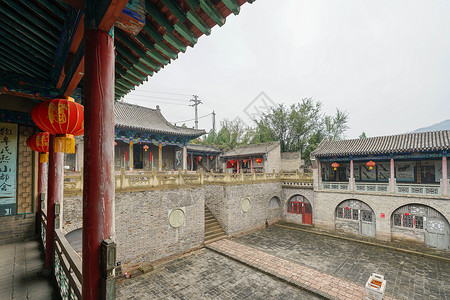
Luliang Yukou Shengmu Temple.
Recommended Dishes
– Pingyao Beef: A local specialty, this tender beef dish is marinated and slow-cooked, often served with fragrant steamed buns.
– Sour Soup Noodles (Suan Tang Mian): A comforting dish featuring hand-pulled noodles in a sour broth, perfect for warming up after a day of sightseeing.
– Jiaozi (Dumplings): These are a must-try, especially when enjoyed with a dipping sauce made from local vinegar.
Dining Venues
– Shanxi Vegetarian Restaurant: Located near the temple, this restaurant offers a variety of vegetarian dishes, perfect for those seeking lighter fare.
– Yukou Noodle House: A cozy spot where you can enjoy traditional noodle dishes made fresh daily.
– Local Street Stalls: For a more authentic experience, wander through nearby streets where vendors sell snacks like fried dough sticks and sweet rice balls.
Where to Stay
Accommodations
Finding the right place to stay can enhance your visit to Yukou Shengmu Temple. Here are a few options that cater to different preferences and budgets:
- Yukou Temple Hotel
- Overview: A charming hotel located within walking distance of the temple, offering comfortable rooms with traditional decor.
-
Amenities: Free Wi-Fi, on-site dining, and guided tours to local attractions.
-
Luliang International Hotel
- Overview: A modern hotel that provides a bit more luxury, featuring spacious rooms with stunning views of the surrounding mountains.
-
Amenities: Fitness center, spa services, and a rooftop restaurant serving both local and international cuisine.
-
Guesthouses
-
For a more intimate experience, consider staying at one of the local guesthouses. These often offer personalized service and a chance to interact with local families. Look for listings on travel platforms for options that suit your needs.
-
Hostels
- Budget travelers will find several hostels in the area, ideal for meeting fellow travelers and sharing experiences. Many hostels provide dormitory-style accommodations and communal kitchens.
Final Tips
- Reservations: Especially during peak seasons, it’s wise to book your accommodation in advance to secure the best rates and availability.
- Local Insights: Don’t hesitate to ask your hosts for recommendations on where to eat or what to see. Locals often have the best insights into hidden gems that may not be in the guidebooks.
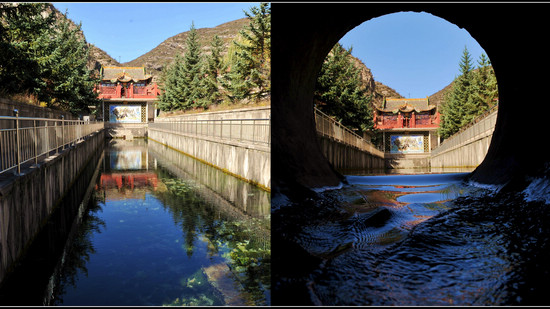
Luliang Yukou Shengmu Temple.
With these food and accommodation options in mind, you’re all set for a fulfilling visit to Yukou Shengmu Temple, soaking in the rich cultural heritage and delicious flavors of Shanxi.
Frequently Asked Questions
Frequently Asked Questions
1. Where is Luliang Yukou Shengmu Temple located?
Luliang Yukou Shengmu Temple is situated in the Yukou area of Fenxian County, Shanxi Province, China. It is easily accessible from major cities in the Shanxi region.
2. What is the history of Yukou Shengmu Temple?
The temple has a rich history, believed to date back several centuries. It serves as a significant site for worship and is dedicated to the Goddess of Mercy, showcasing traditional Chinese architectural styles and cultural heritage.
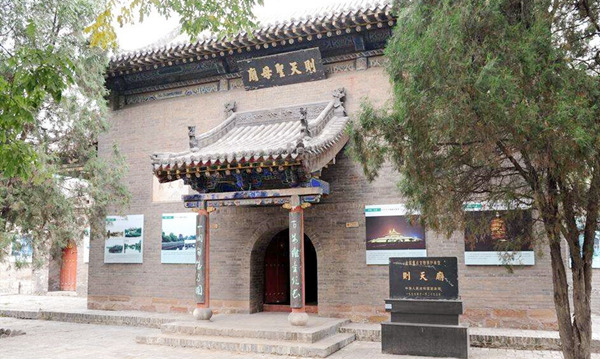
Luliang Yukou Shengmu Temple.
3. What are the opening hours of the temple?
Yukou Shengmu Temple is generally open to visitors from 8:00 AM to 5:00 PM. However, it’s recommended to check for any seasonal variations or special events that may affect the visiting hours.
4. Is there an entrance fee to visit the temple?
Yes, there is usually a nominal entrance fee to visit Yukou Shengmu Temple. The fee contributes to the maintenance of the site. It’s advisable to bring cash, as not all locations may accept cards.
5. What should I wear when visiting the temple?
Visitors are encouraged to dress modestly and respectfully, considering the spiritual significance of the temple. Comfortable walking shoes are also recommended, as you may need to walk on uneven surfaces.
6. Are there any guided tours available?
Yes, there are guided tours available for visitors who wish to learn more about the temple’s history and cultural significance. It’s advisable to book these tours in advance, especially during peak travel seasons.
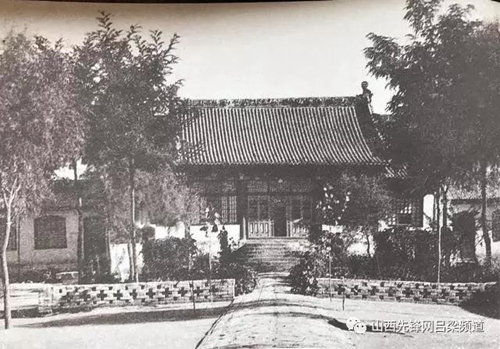
Luliang Yukou Shengmu Temple.
7. Can I take photographs inside the temple?
Photography policies may vary, so it’s best to check for any specific restrictions upon entering the temple. Generally, taking photos outside the main areas is allowed, but be respectful of worshippers and sacred spaces.
8. Are there accommodations nearby?
Yes, there are various accommodations ranging from hotels to guesthouses near Yukou Shengmu Temple. It’s recommended to book your stay in advance, especially during holiday seasons or local festivals.
Final Thoughts on Your Trip
Visiting Luliang Yukou Shengmu Temple is more than just a trip to a historical site; it is an immersion into a rich tapestry of culture, spirituality, and nature. Nestled in the picturesque landscape of Shanxi Province, this temple offers a serene escape from the hustle and bustle of modern life. Whether you are drawn by its architectural beauty, the tranquility of its surroundings, or the opportunity to delve into Daoist traditions, Yukou Shengmu Temple promises a unique experience that resonates with the essence of Chinese heritage.
As you walk through its ancient halls and gaze upon its intricate carvings, you’re reminded of the generations that have sought solace and inspiration within these sacred walls. The temple’s significance as a national cultural relic underscores its role in preserving the spiritual and historical narrative of the region.
Leaving the temple grounds, you will carry with you not only memories of breathtaking views and sacred rites but also a deeper understanding of the philosophies that have shaped this land for centuries. This is a place where past and present converge, inviting travelers to reflect on their own journeys. Embrace the spirit of Yukou Shengmu Temple, and let it inspire your own path as you explore the wonders of Shanxi and beyond.
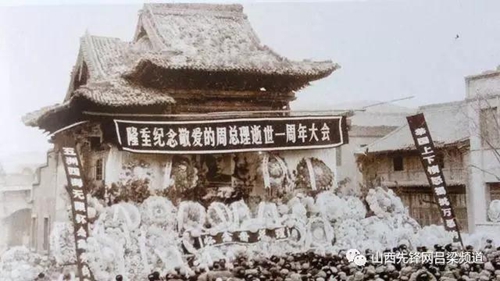
Luliang Yukou Shengmu Temple.
